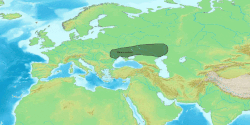Ethnic group in South Asia
This article needs additional citations for verification . Please help improve this article by adding citations to reliable sources. Unsourced material may be challenged and removed. Find sources: "List of Baloch tribes" – news · newspapers · books · scholar · JSTOR (October 2018) ( Learn how and when to remove this message ) |
| Part of a series on |
| Indo-European topics |
|---|
 |
Extant Extinct Reconstructed Hypothetical
Grammar Other |
Origins |
Archaeology Chalcolithic (Copper Age) Pontic Steppe Caucasus East Asia Eastern Europe Northern Europe Bronze Age Northern/Eastern Steppe Europe
South Asia Iron Age Europe Caucasus Central Asia India |
Peoples and societies Bronze Age Iron Age Indo-Aryans Iranians Nuristanis East Asia Europe Middle Ages Europe Indo-Aryan Iranian |
Religion and mythology Reconstructed
Historical Others Practices |
Following is the list of notable Baloch tribes and clans: